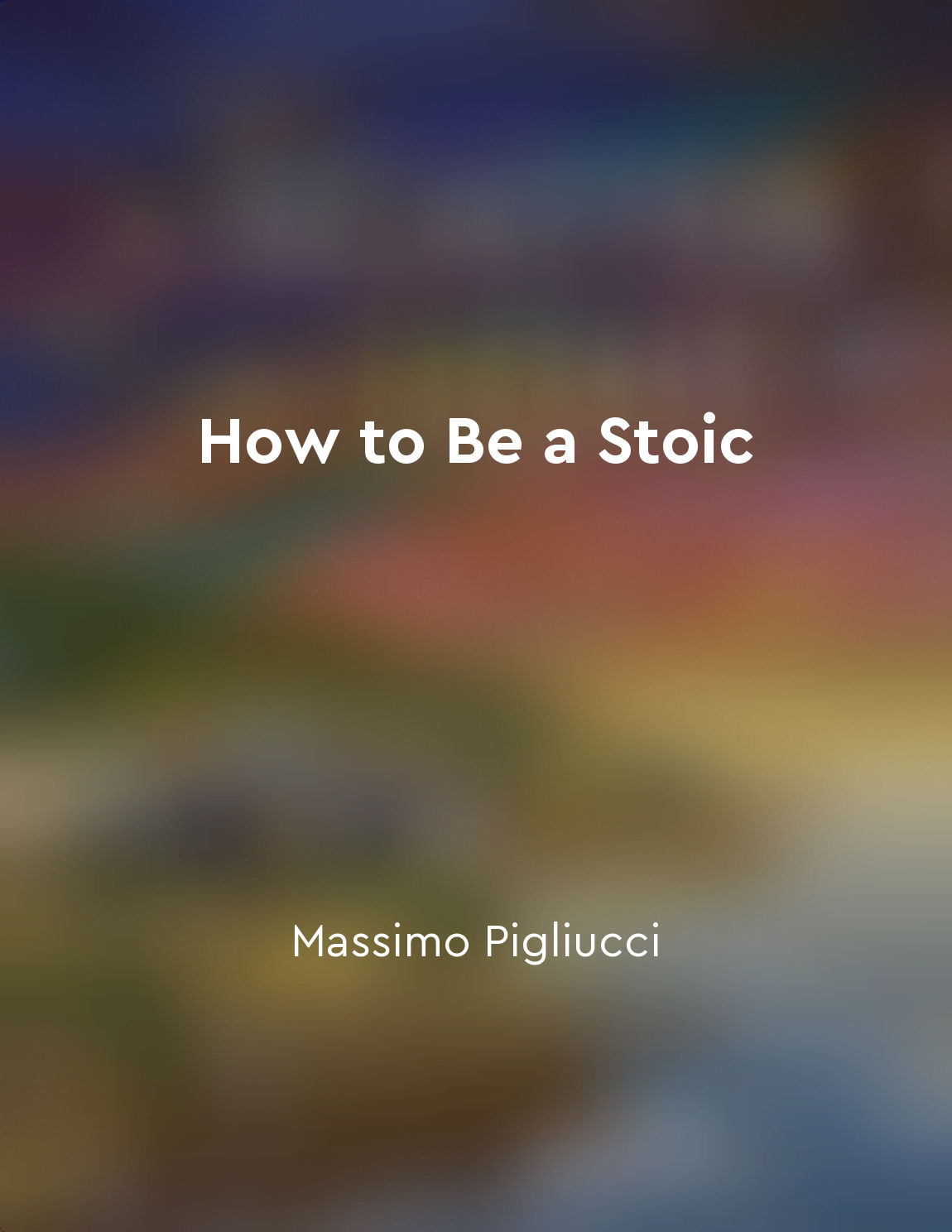Paradoxes emerge in the intersection of Stoicism and romanticism from "summary" of Stoic Romanticism and the Ethics of Emotion by Jacob Risinger
The intertwining of Stoicism and romanticism presents a rich tapestry of paradoxes that challenge traditional notions of emotion and ethics. Stoicism, with its emphasis on reason, self-control, and detachment from emotions, seems diametrically opposed to romanticism, which celebrates passion, intensity, and emotional expression. Yet, as we delve deeper into the intersection of these philosophical traditions, we discover a complex interplay that defies simple categorization. Stoicism teaches us to cultivate an inner resilience and tranquility, to accept the inevitability of change and suffering, and to maintain a sense of equanimity in the face of life's ups and downs. On the other hand, romanticism urges us to embrace our emotions fully, to revel in the intensity of our feelings, and to seek out profound experiences that touch the depths of our souls. How can these seemingly conflicting perspectives be reconciled? One way to approach this paradox is to recognize that both Stoicism and romanticism offer valuable insights into the nature of human emotions. Stoicism reminds us of the importance of rationality and self-mastery in guiding our responses to the world, while romanticism highlights the transformative power of emotions in shaping our identities and relationships. By integrating these two perspectives, we can develop a more nuanced understanding of emotion that allows for both self-control and emotional authenticity. Furthermore, the intersection of Stoicism and romanticism invites us to reconsider traditional dichotomies between reason and passion, duty and desire, and self-discipline and self-expression. Rather than viewing these concepts as mutually exclusive, we can explore the ways in which they complement and enrich each other. In doing so, we may discover new possibilities for ethical engagement that transcend conventional boundaries and open up new horizons of emotional experience.- The paradoxes that emerge in the intersection of Stoicism and romanticism challenge us to question our assumptions about the nature of emotion, ethics, and the human experience. By engaging with these paradoxes with an open mind and a willingness to embrace complexity, we can deepen our understanding of ourselves and our relationships with others, and cultivate a more authentic and fulfilling way of being in the world.
Similar Posts
Find contentment in the present moment
The wise man is neither crushed by fortune nor disheartened by the vicissitudes of life. He does not look to the past with regr...

Practice mindfulness and awareness of the present moment
The Stoics were well aware of the importance of paying attention to the present moment, a practice that has now been embraced b...

Stoicism emphasizes the importance of selfdiscipline
Stoicism places great emphasis on the cultivation of self-discipline as a means to achieve inner tranquility and freedom from n...
Rationality is key in dealing with emotions
The Stoic philosophers argue that rationality is the primary tool we must use in dealing with our emotions. According to their ...
Mastering the art of responding with wisdom and composure in difficult situations
Responding with wisdom and composure in challenging situations is a skill that requires practice and dedication. It is not easy...
The Stoic philosophy offers practical techniques for emotional regulation
The Stoic philosophy provides individuals with a set of practical tools that can be used to regulate their emotions. These tech...
Stoics value integrity and honesty in all actions
Stoics believed in the importance of living a virtuous life, which includes upholding integrity and honesty in all actions. Thi...

Stoicism is a philosophy that teaches us how to live a good life
The Stoic philosophy presents a way of life that is deeply rooted in the idea of living in accordance with nature. It encourage...

